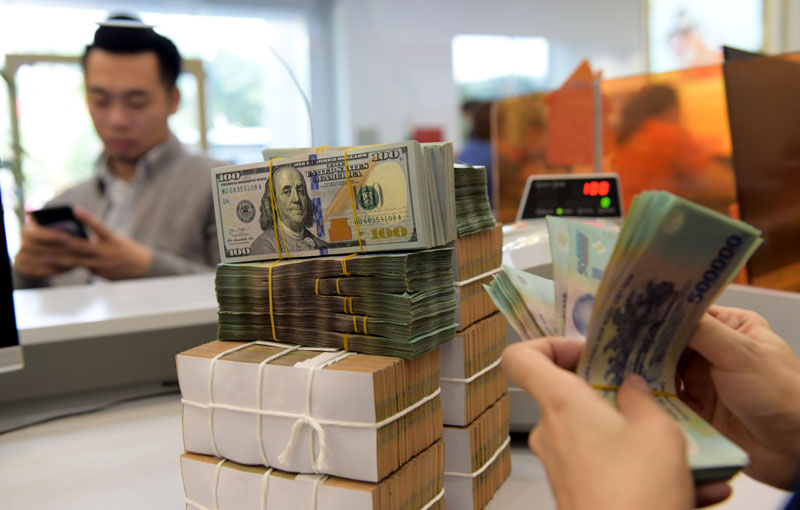Government bonds reverse Vietnam's dependence on foreign loans
The proportion of foreign loans in public debts shrank from 73.6% in 2010 to 34.8% in 2021.
Government bonds have proved to be a key instrument in restructuring Vietnam’s public debt and helped reverse its dependence on foreign loans.
| The proportion of foreign loans in public debts has been on the decline since 2010. Photo: Pham Hung |
The information was revealed in the latest report from the Hanoi Stock Exchange (HNX), which reviews the 12 years of the development of the government bond market (September 2009 – September 2021).
According to the report, the proportion of foreign loans in public debts shrank from 73.6% in 2010 to 63.4% in 2015, and eventually 34.8% in 2021.
“This shows domestic sources are now in a better position to meet capital needs from the Government while relieving part of the burden of high capital costs on the budget,” stated the report.
The HNX suggested along with a move away from foreign loans, interest rates of Government bonds have also been reduced compared to previous periods, while the debt payment schedule is further extended to allow more flexibility in the Government’s payment capabilities.
During the 12-year period, the average capital mobilization rate of government bonds declined from 10% in 2009 to 2% in 2021, with the maturity period from two to three years in 2009 to 12.2 years in 2021.
Overall, over VND2,470 trillion ($108.3 billion) were mobilized in the primary market for the past 12 years to support socio-economic development, averaging around VND206 trillion ($9 billion) per year, or 10% of the country’s investment capital in 2020 and 28.3% from the state-owned sector.
This came from over 2,600 auction sessions carried out by the HNX with a successful bidding rate of 60-70% of the total bonds on offer.
According to the HNX, in the secondary market, the government bond market has been on the rise in scale and gradually on par with those of regional and in the world.
As of August 2021, total outstanding loans from Government bonds in the HNX stood at VND1,400 trillion ($61.4 billion), an 8.7-fold increase against that of in 2009.
Market liquidity in 2021 is estimated at VND10.8 trillion ($473.7 million) per session, up nearly 30-fold against 2009.
Transaction value through repurchase agreements (repos) went from a modest rate of 6.5% of the total in 2009 to over 33% in 2021.
Along with efforts to promote the Government bond market, the HNX said it plans to focus on expanding the private placement corporate bond market to further attract investment capital.













